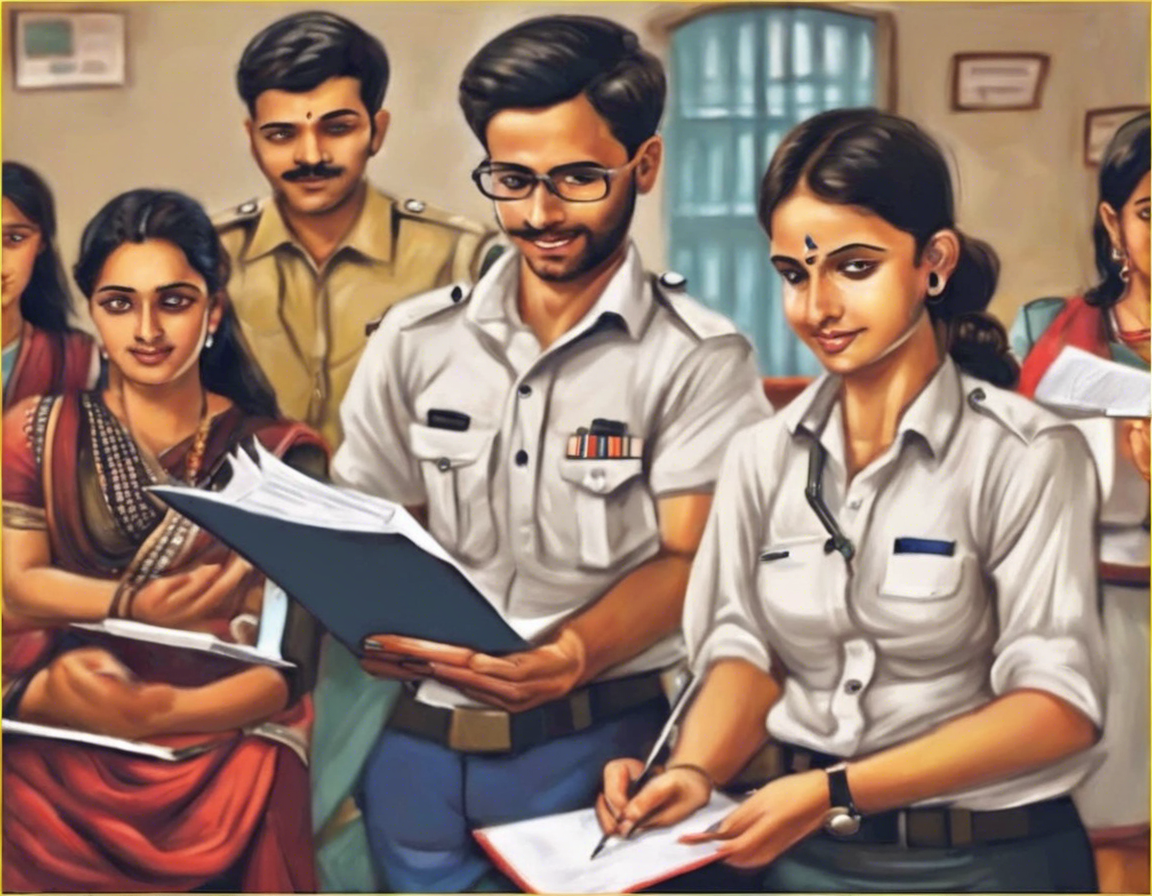The UPSC stands for the Union Public Service Commission. It is India’s central recruiting agency responsible for conducting examinations to recruit candidates into various civil services and other government positions.
The organization operates under the Article 315 of the Constitution of India. It is an autonomous body that is tasked with recruiting capable individuals for the various positions in the country’s civil services. The UPSC conducts examinations for appointments to the All India Services and Group A and Group B of Central Services.
History of UPSC:
The Union Public Service Commission was established on October 1, 1926, as the Public Service Commission. After India gained independence in 1947, it was reconstituted as the Federal Public Service Commission. Finally, in 1950, it was renamed the Union Public Service Commission.
Roles and Responsibilities of UPSC:
The UPSC plays a crucial role in the recruitment process for various government positions. Some of the key responsibilities of the UPSC include:
-
Conducting examinations: The UPSC conducts examinations such as the Civil Services Examination, Engineering Services Examination, Combined Defence Services Examination, etc., to recruit candidates for different government positions.
-
Advising the government: The commission advises the government on various matters related to personnel management, such as recruitment, promotion, transfers, and disciplinary actions.
-
Recruitment: The UPSC is responsible for recruiting candidates for Group A and Group B posts in the government.
-
Conducting interviews: The commission conducts interviews for candidates who have qualified in the written examinations.
-
Amendments: The UPSC also recommends amendments to the recruitment rules and advises on the suitability of candidates for various government positions.
Examinations Conducted by UPSC:
The UPSC conducts several examinations each year to select candidates for different government positions. Some of the prominent examinations conducted by the UPSC include:
-
Civil Services Examination (CSE): This is one of the most prestigious examinations conducted by the UPSC to recruit candidates for the Indian Administrative Service (IAS), Indian Foreign Service (IFS), Indian Police Service (IPS), and other Group A and Group B services.
-
Engineering Services Examination (ESE): This examination is conducted to recruit engineers into various government departments.
-
Combined Defence Services Examination (CDSE): The CDSE is conducted to recruit candidates into the Indian Military Academy, Indian Naval Academy, Air Force Academy, and Officers Training Academy.
-
National Defence Academy Examination (NDA): This examination is conducted for admission to the Army, Navy, and Air Force wings of the National Defence Academy.
-
Indian Forest Service Examination (IFoS): The IFoS examination is conducted for the recruitment of officers in the Indian Forest Service.
FAQs About UPSC:
-
What is the age limit for UPSC exams?
The minimum age to appear for the UPSC Civil Services Examination is 21 years, and the maximum age varies based on the category and number of attempts. -
Is there any restriction on the number of attempts for UPSC exams?
The number of attempts varies based on the candidate’s category: General category – 6 attempts, OBC category – 9 attempts, SC/ST category – unlimited attempts. -
What is the educational qualification required for UPSC exams?
Candidates must hold a bachelor’s degree from a recognized university to be eligible for the UPSC Civil Services Examination. -
What is the exam pattern for the UPSC Civil Services Examination?
The UPSC Civil Services Examination comprises three stages: Preliminary Examination (Objective Type), Main Examination (Written Examination), and Personality Test (Interview). -
What is the syllabus for the UPSC Civil Services Examination?
The syllabus for the UPSC Civil Services Examination includes topics such as History, Geography, Polity, Economy, General Science, Current Affairs, and Aptitude. -
How can I prepare for the UPSC Civil Services Examination?
To prepare for the UPSC Civil Services Examination, candidates should make a study plan, refer to standard study materials, practice previous years’ question papers, and stay updated with current affairs. -
What are the career opportunities after clearing the UPSC exams?
Candidates who clear the UPSC exams can get appointed to prestigious positions such as IAS, IPS, IFS, IRS, and other Group A and Group B services in the government. -
Is coaching necessary for UPSC exams?
Coaching is not mandatory for clearing the UPSC exams, but it can help candidates in preparing systematically and staying focused on their goal. -
How can I apply for UPSC exams?
Candidates can apply for UPSC exams online through the official UPSC website by filling out the application form, paying the required fees, and submitting the necessary documents. -
What is the selection process after clearing the UPSC exams?
After clearing the UPSC exams, candidates are called for the personality test (interview) where a panel evaluates their overall personality, communication skills, and suitability for the services.
In conclusion, the Union Public Service Commission plays a pivotal role in recruiting talented individuals for various government positions through its rigorous selection process. Aspiring candidates looking to join the civil services or other government services must prepare diligently and stay updated with the latest exam patterns and syllabus to increase their chances of success in the UPSC examinations.
